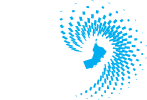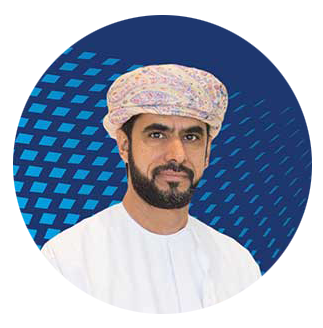About us
 is a Highly reputed Omani SME, registered with the Ministry of Trade, Industry and Investment Promotion and a member of Riyada authorized to carry out studies and consultations in the field of investment, finance, management and economy.
is a Highly reputed Omani SME, registered with the Ministry of Trade, Industry and Investment Promotion and a member of Riyada authorized to carry out studies and consultations in the field of investment, finance, management and economy.
Inspired by the strength of the Omani Vision 2040 and the Sultanate’s outstanding competitive offerings, SIG connects investors with opportunities, assists them in activating their plans and supports them as they accelerate towards their goals.
SIG looks forward to sharing its local expertise and knowledge with your entity, helping you make the most of the possibilities of Oman’s ambitious and growing economy – to being your gateway to investment in Oman.
For more information about Smart Investment Gateway, please visit their website: https://www.omaninvestgateway.com
 The Konrad-Adenauer-Stiftung (KAS) is a non-profit German foundation and one of the leading think tanks worldwide. KAS is affiliated with the conservative Christian Democratic Union (CDU). Today, it operates with more than 100 offices in 120 countries worldwide, implementing over 200 programmes. KAS receives its funding from Germany’s Federal Ministries approved by the German Parliament. The work of KAS is subjected to strict German Federal government spending regulations with regard to transparency and audit that also require compliance with the laws of the countries it is working in.
The Konrad-Adenauer-Stiftung (KAS) is a non-profit German foundation and one of the leading think tanks worldwide. KAS is affiliated with the conservative Christian Democratic Union (CDU). Today, it operates with more than 100 offices in 120 countries worldwide, implementing over 200 programmes. KAS receives its funding from Germany’s Federal Ministries approved by the German Parliament. The work of KAS is subjected to strict German Federal government spending regulations with regard to transparency and audit that also require compliance with the laws of the countries it is working in.
The Regional Programme Gulf States at KAS works with the countries of the Gulf Cooperation Council (GCC) and Yemen. Its main objective is to advance the relations between the region, Germany, and European countries by working on projects tied to people-to-people’s level. KAS sees itself as a networking hub with close connections to stakeholders such as members of government, legislative council, professionals from academia, think tanks, businesses, and civil society organizations. As a think tank and consulting agency, our research and analyses serve as a basis to stakeholders in Germany and around the globe for an informed decision-making. Sharing our expertise thus becomes a joint learning process for all and contributes to a better understanding between different cultures in a globalized world.
KAS believes trust and mutual understanding are key components to the successful exchange of ideas, cooperation, and overcoming misunderstanding and misperception. In order to do so, KAS’s Regional Programme Gulf States supports projects that are related to three pillars broadly defined: economic development, dialogue, and youth and women empowerment.
For more information about the Regional Program Gulf States at Kobrad Adenauer Stiftung, please visit their website: https://www.kas.de/en/web/rpg/home
Our Purpose
Our Mission
To provide latest data, statistics and research on economic diversification in GCC countries for decision-making and policy design.
Our Vision
Developing a comprehensive, sustainable and world-leading platform for monitoring economic diversification dynamics in GCC countries.
Our Services
As a none for profit project, the portal will be supported by volunteer experts to continuously update figures, statistics, indices and research on diversification. We’re targeting to educate academic, private sector and policy makers about diversification trends in GCC countries.

Dr. Yousef Hamed Al Balushi
A Message from The Director
I am proud and honoured to introduce the Gulf States Economic Diversification Barometer, which addresses the latest dynamics and trends of economic diversification in GCC countries. Through providing various measures and indices of economic diversification status in GCC, our platform offers extraordinary opportunities for researchers, individuals, businesses and policymakers. Our vision is to provide a comprehensive, sustainable and world-leading platform for monitoring economic diversification in GCC countries based on data evidence.
The GCC has overall progressed well during the last five decades in all aspects of economic and social development. This is reflected in different local and international indicators. However, there are a number of great challenges that remain, such as services in demographic growth, health, education, jobs, diversification of the economic base and increasing the private sector’s contributions in development process.
Our project intends to evaluate the GCC’s efforts to shift their economies away from heavy dependence on hydrocarbons, towards diversified economic systems in order to adequately understand the trends and patterns of slow progress in economic diversification. We carry out a comprehensive review of literature on economic diversification that aims to provide a thorough outlook on studies, policies, and research dedicated to economic diversification. The analysis deliver an all-encompassing definition and measures of economic diversification, GCC economic status on the progress of economic diversification, and examination of the key reasons that attributed to the slow progression of economic diversification in the GCC countries, therefore paving the way for tailored policy recommendations suitable for the structural embedment of economically divergent sectors in GCC economies, independent from oil and gas.
The project attempts to answer the following key questions: Why is the GCC having limited success in diversification? What are the sentiments or cause behind these reasons? How can the GCC resolve this diversification dilemma?
The studies confirm that the strategies and policies adopted by future visions placed by the GCC for the purpose of economic diversification are correct and sound, and in conformity with the best recommendations of international institutions and practices in this regard. However, the emergence of deficiencies in performance related to economic diversification reflected in the indicators is due to the fact that the GCC’s various visions do not include a sound strategy for execution, follow-up or evaluation.
The GCC must aspire for a paradigm shift in all aspects of development. This starts with mind-sets. Necessary and urgent changes will be required in the government, business environment and society, i.e. everything that touches day to day lives. We have a limited time to achieve this, however on a brighter note, we have all the resources we require in terms of nature, people and infrastructure at hand.
Dr. Yousuf Hamed Al-Balushi

